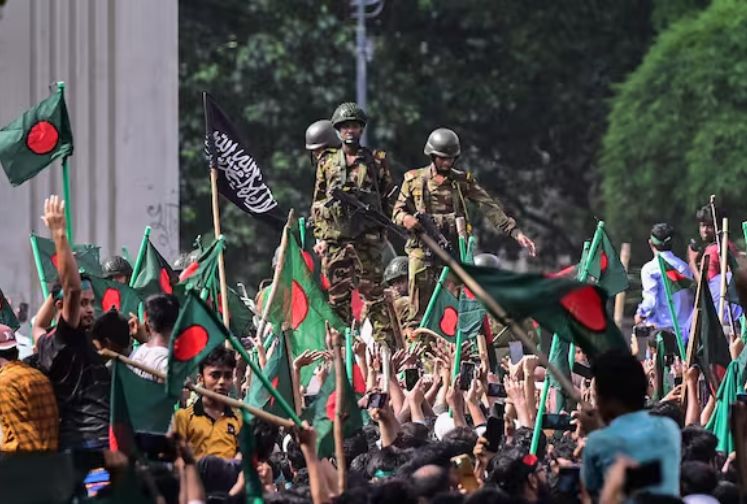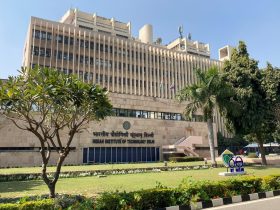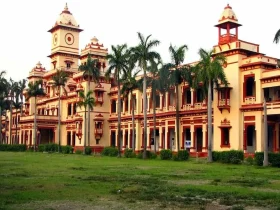NEW DELHI, August 9, 2024 -In a significant development arising from the ongoing political turmoil in Bangladesh, more than 7,200 Indian students have returned to their home country over the past few weeks, the Indian government announced on Thursday. This mass exodus highlights the growing concerns for the safety of foreign nationals in the neighboring nation.
Over 7,200 Indian Students Return Amid Bangladesh Crisis
- 7,200+ Indian students returned from Bangladesh between July 18 and August 1, 2024
- Approximately 19,000 Indian citizens, including 9,000 students, remain in Bangladesh
- Indian diplomatic missions are actively assisting with voluntary departures
- Students from various Indian states affected, including Jammu and Kashmir, Gujarat, and Uttar Pradesh
Minister of State for External Affairs, Kirti Vardhan Singh, provided these details in a written response to queries in the Rajya Sabha, India’s upper house of parliament. The minister’s statement underscores the Indian government’s proactive approach in addressing the safety concerns of its citizens abroad.
Diplomatic Efforts and Assistance
The Indian government has mobilized its diplomatic resources to facilitate the safe return of its citizens. Singh elaborated on the coordinated efforts:
“The High Commission of India in Dhaka and the Assistant High Commissions in Chittagong, Rajshahi, Sylhet, and Khulna have been assisting in the voluntary return of Indian nationals,” he stated.
These diplomatic missions are working in tandem with Bangladeshi authorities to ensure the safety and security of Indian citizens during their stay and transit to airports and land ports along the India-Bangladesh border.
The Ministry of External Affairs is also collaborating with relevant Indian authorities to streamline the process for returning citizens at land ports and airports. This coordinated approach aims to minimize disruptions and ensure a smooth transition for those choosing to return.
Student Demographics and Impact
While a state-wise breakdown of returning students is not maintained, Singh noted that Indian students in Bangladesh hail from various regions, including:
- Jammu and Kashmir (Union Territory)
- Gujarat
- Uttar Pradesh
- Bihar
- Tamil Nadu
- Rajasthan
- West Bengal
- Tripura
- Assam
The diverse origins of these students highlight the widespread impact of the crisis on Indian communities across the subcontinent. Many of these students were pursuing medical education in Bangladesh, a popular destination due to its quality institutions and relatively lower costs.
Ongoing Concerns & Remaining Indian Presence
Despite the significant number of returnees, a substantial Indian presence remains in Bangladesh. According to available records, approximately 19,000 Indian citizens, including over 9,000 students, continue to reside in the country. This sizeable community underscores the importance of sustained diplomatic efforts and vigilance.
The Indian government has not disclosed specific details about the nature of the unrest or potential threats to Indian nationals. However, the coordinated efforts to facilitate returns suggest a cautious approach to ensure citizens’ safety.
Regional Implications and Foreign Policy
The situation in Bangladesh has broader implications for regional stability and India’s foreign policy. When questioned about growing Chinese influence in neighboring countries, Singh reiterated India’s commitment to its “Neighbourhood First Policy.”
“Our relations with neighbours stand on their own footing and are independent of the relations of these countries with third countries,” Singh asserted.
He emphasized that the government maintains a vigilant watch on all developments that could impact India’s national security.
This statement reflects India’s nuanced approach to regional diplomacy, balancing its strategic interests with the need to maintain positive relations with its neighbors.
Challenges & Opportunities
As the situation in Bangladesh continues to evolve, the Indian government remains committed to assisting its citizens. The Ministry of External Affairs has urged Indian nationals in Bangladesh to stay in touch with the Indian diplomatic missions and follow their advisories.
The ongoing crisis serves as a reminder of the complex geopolitical landscape in South Asia and the challenges faced by countries in maintaining regional stability. It also highlights the need for robust emergency response mechanisms to protect citizens abroad.
For India, this situation presents both challenges and opportunities:
- Strengthening diplomatic ties with Bangladesh
- Enhancing crisis response capabilities
- Reevaluating policies regarding Indian students studying abroad
- Developing alternative educational opportunities within India
India Prioritizes Students Safe Return
As India navigates these turbulent waters, the safe return of its students and citizens remains a top priority. The government’s response to this crisis will likely shape its approach to similar situations in the future.
The return of over 7,200 Indian students from Bangladesh marks a significant chapter in the ongoing political crisis in the region. As the situation unfolds, the Indian government’s ability to protect its citizens abroad while maintaining regional diplomatic balance will be crucial.
For the latest updates on the Bangladesh crisis and its impact on Indian nationals, citizens are advised to monitor official communications from the Ministry of External Affairs and the Indian High Commission in Dhaka.
News:
- IIT Delhi 55th Convocation 2024: 2,600 Graduates, 475 PhDs, New Programs, 10 Alumni Honored on August 10
- ISB, Emeritus Launch Certificate in Healthcare Management Starting September 12, 2024
- BITS Pilani Launches Centre for Research Excellence in National Security (CRENS) to Strengthen National Security
- IIT Indore & DRDO Develop Energy Harvesting Shoes with GPS Tracking and TENG Technology for Military & Civilian Use




